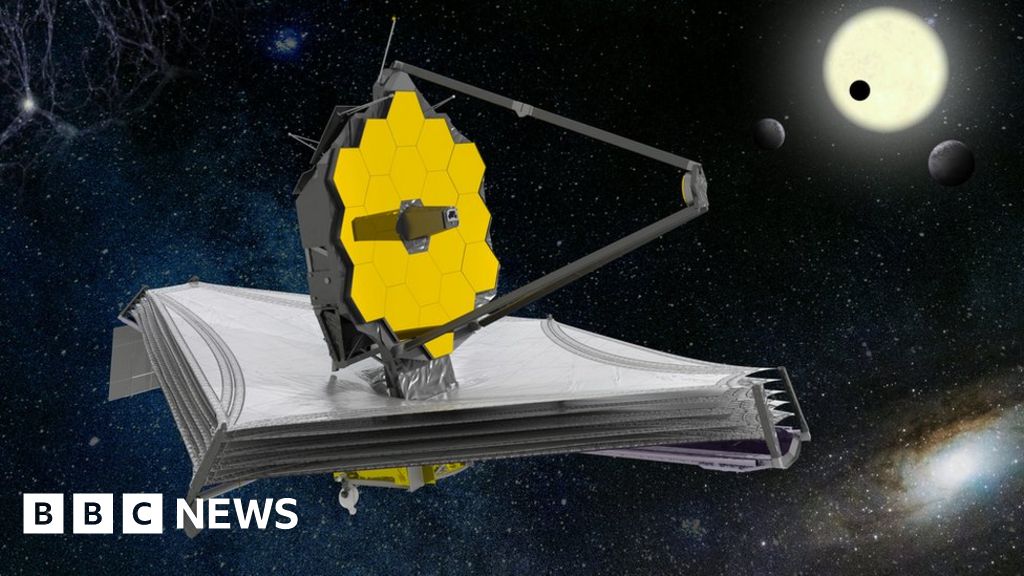Port primary mirror wing deployed and latched.
So much credit is due to the people who have worked on this.
So much credit is due to the people who have worked on this.

It's at the L2 Lagrange point so that can use the Earth to help shield it from the sun, but this point is unstable so it will be constantly being nudged out of its optimum position (on a timescale of 23 days apparently). Hence the need for fuel to nudge it back into the correct position.I was curious given that the Hubble has been up for 30 (twice its estimated lifespan) so did a little digging about Webb. Apparently, because it’s so far out, it will have to burn fuel occasionally for ‘station keeping’. I’m assuming Hubble being closer didn’t have this problem (at least not to the same extent). Also, Webb’s distance from Earth will, it seems, make it impossible to carry out maintenance or repair.
So, with all that, I finally understand how crucial this precision launch has been
My guess is a robotic maintenance satellite. Robotics is up-and-coming technology - well up to the job by 2032 and will be an order of magnitude cheaper than sending astronauts out there.Yes it's a bit too far out for maintenance trips, but as @Parson points out if it lasts more than 10 years, who know what sort of ship/tech we might have!

I’ve read somewhere that it might be possible to produce an artificial lagrange point by using two spacecraft. I wonder, therefore, if it might be possible some time in the future to send out another satellite to act like a kind of cosmic counterweight and increase Webb’s stability that way?It's at the L2 Lagrange point so that can use the Earth to help shield it from the sun, but this point is unstable so it will be constantly being nudged out of its optimum position (on a timescale of 23 days apparently). Hence the need for fuel to nudge it back into the correct position.
Yes it's a bit too far out for maintenance trips, but as @Parson points out if it lasts more than 10 years, who know what sort of ship/tech we might have!
Interesting, would love to see the idea. Off the top of my head, the centre of mass of the two satellite system would still behave like a single mass, and being much, much lighter than the Earth and Sun would still wander off, but no doubt I'm missing something!I’ve read somewhere that it might be possible to produce an artificial lagrange point by using two spacecraft. I wonder, therefore, if it might be possible some time in the future to send out another satellite to act like a kind of cosmic counterweight and increase Webb’s stability that way?
It's a bit like the Hadron Collider: it cost $4,4 billion to build and studies the behaviour of subatomic particles. Very much a case of theoretical knowledge with little or no practical application. As far as I know (feel free to correct me) our understanding of the building blocks of matter has long since outstripped our ability to make any technological use of that understanding. It's now purely knowledge for knowledge's sake. Does that justify spending billions of dollars? It seems odd to me.

I thought this was a good article for us astronomical ignoramuses

James Webb telescope completes epic deployment sequence
With the unpacking of its big mirror, the $10bn telescope is on track to begin its historic mission.www.bbc.co.uk
This, I thought, was an exciting quote from the leader of the mirror development team
"Webb is so powerful, almost anywhere we look we're going to be breaking new ground in a huge way,"
I'm looking forward to that too. Don't take any cold water I've splashed around as a lack of enthusiasm for the project. The universe is a fascinating place.I was just coming to post that link - great piece. And so impressive it's all working so far, as so many things could have gone wrong. Really looking forward to deeper insights on exoplanets once it's in position and fully running.
I think what helped me the most in this article was understanding the importance of the sun shield. I thought the analogy of trying to see the flames from a match against a backdrop of a burning haystack explained the problem perfectlyI was just coming to post that link - great piece. And so impressive it's all working so far, as so many things could have gone wrong. Really looking forward to deeper insights on exoplanets once it's in position and fully running.
My guess is that there is a certain amount of redundancy built in - if a few pulleys malfunction the others can take over their job in order to ensure the tasks get done,. and vice versa. The whole project isn't a bust just because one pulley motor doesn't work.There's a video on YouTube showing it unfolding:
Looks quite simple, but there are around 400 pulleys involved in that, and goodness knows what the effect of just one of those breaking would have had.
